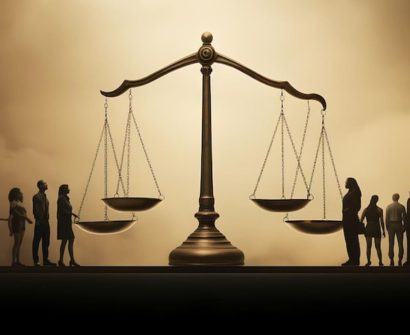
The reservation system is an explosive topic and an essential component of social justice in the enormous tapestry of India’s sociopolitical terrain. The Reservation in India, which is safeguarded by the Constitution and seeks to support disadvantaged populations, has attracted plaudits for its egalitarian objectives but also condemnation for how it has been administered and impacted.
In this article, we examine the complex reality of Reservation in India, looking at the historical foundations, present problems, and potential reform routes.
history of reservation in india
- In 1882, William Hunter and Jyotirao Phule first proposed the concept of a caste-based reservation system.
- With the presentation of the “Communal Award” by British Prime Minister Ramsay Macdonald in 1933, the reservation system as it is known today was officially established.
- Separate electorates for Muslims, Sikhs, Indian Christians, Anglo-Indians, Europeans, and Dalits were provided for by the award.
- Following protracted talks, Gandhi and Ambedkar agreed to create a single Hindu electorate with a few reservations when they signed the “Poona Pact.”
- After independence, reservations were first restricted to SCs and STs.
- In 1991, OBCs were included in the reserved population based on the Mandal Commission’s recommendations.
Reservation in India
Reservations were included in the Indian Constitution shortly after independence in order to recognize historical wrongs committed against people from marginalized communities and to establish laws that would grant them more access to resources and opportunities.
In India, the reservation was first implemented:
- To make up for the historical injustices committed against India’s lower classes
- To guarantee that individuals from all castes are equally represented in state and central government services
- to give everyone access to a level playing field regardless of caste
- To encourage and progress the lower classes
reservation in indian constitution
- Under Article 15(4) of the First Amendment of 1951 provides a special provision for the advancement of the lower classes.
- Under Article 15(5) of the 93rd Amendment, 2006 provides a reservation for courses in private educational institutions that are Backward, SC, and ST.
- Under Article 16(3), Reserving positions in government jobs based on residency
- Under Article 16(4), the Backward classes are granted preference in state employment.
- Articles 330-342 discuss unique provisions for particular social classes.
- Under Article 45, States are required under the Directive Principles of State Policy to improve the living conditions and health of the underprivileged.
- Under Article 39 A, the Directive Principles of State Policy, states are required to guarantee the economically disadvantaged classes fairness and free legal assistance.
Reservation Benefits and Challenges
reservation in india Benefits:
- Reduced Wealth-Poverty Gap for Regressive Classes:
It also aids in closing the income gap between the wealthy and the underprivileged backward classes seeking positions in government. reservation for sc and st guarantees that those from the lower social classes receive a fair wage, which helps them break the vicious cycle of poverty. To put it simply, reservations contribute to closing the wealth gap between the wealthy and the underprivileged.
- Equality versus Meritocracy
A meritocracy devoid of equality is useless. Regardless of merit, everyone must first be brought to the same level, whether this advances or retards a particular group. The difference between the upper and lower castes was also significantly reduced by the caste-based reservation.
- Encouraging Backward Classes
The main benefit of the reservation system is that it aids in the advancement of people from lower social classes. In developing nations like India, people from lower social classes often lack access to good jobs and a decent standard of living, not because of a lack of talent but rather because of their caste. Because of this, they are often offered jobs that people from higher social classes cannot perform.
reservation in india Challenges:
- Level of Education and Employment
The main goals of reservation laws are to restrict access to government employment and education. However, there are worries that these rules could eventually result in a decline in the quality of education and the labour force since candidates may be selected more based on quotas than on merit.
- Resentment and Division
Within society, reservations can occasionally lead to social and economic divisions. This division may deepen resentment among those who actually lose out on the policies, which could obstruct social cohesion and advancement.
- Economic Development vs. Social Development
Reservation policies frequently prioritize social development over economic development, even if they may not directly address economic inequities. Addressing inequality and advancing general development also depend heavily on economic development.
Quota System in India: potential reform
- Reservation advantages should not go to a select few wealthy children wearing caste tags, but rather to the great majority of impoverished children from destitute castes.
- Prominent officials’ families, well-paid professionals, and those earning more than a particular threshold shouldn’t be eligible for reservation benefits, particularly if they work for the government.
- It is feasible and required to assist the less fortunate members of each community through reservations in a fair and practical manner.
- The reservation procedure ought to identify those who are actually economically disadvantaged and ensure that they are all held accountable.
- It is imperative that the educational system undergo radical adjustments at the local level.
- The need for raising awareness stems from the fact that, despite the unreserved segments’ persistent opposition to the provision, the most vulnerable groups within the reserved segments seldom know that such provisions exist at all.
- Radical alternatives include removing the entire creamy layer from reservation for all castes and fostering their strengths rather than giving them a pass to further education or a job on a silver platter.
In actuality, people who are much more solid socially and economically than the general class but are simply walking around with the label of being a backward class shouldn’t use this reservation policy as a ladder to climb the stairs of profit, money, and other connected interests.
Reservation in India FAQs
- Why reservations are necessary in India?
To make up for the historical injustices committed against India’s lower classes. to guarantee that individuals from all castes have equitable representation in state and federal administrations. to give all people, regardless of caste, an equal platform.
- What is the purpose of reservations?
In order to prevent Native Americans from settling on land that European Americans desired, the Indian reserve system was established. Native Americans were able to preserve parts of their social and cultural customs as well as exercise self-government thanks to the reservation system.
- Who can remove reservations in India?
The Civil Service, government employment, and educational institutions are all subject to a permanent reservation system under the Constitution. It is nearly hard to alter this. The remaining categories of reservations fall under Articles 15 and 16, which protect essential constitutional rights.
- Is reservation a fundamental right?
Various rulings have determined that reservations made under Article 16(4) are only enabling clauses and not fundamental rights.
- What are the disadvantages of reservation?
Reservation laws primarily impact government and educational employment. However, as applicants may be selected more based on quotas than on merit, there are worries that these rules may eventually result in a decline in the standard of education and the work force.
- Which Online rjs coaching is best for RJS preparation?
The reputable Jaipur Online rjs coaching program “Jyoti Judiciary Coaching” aids students in getting ready for the RJS exam. A systematic approach to RJS test preparation is made possible by Jyoti Judiciary, the top offline and online RJS coaching program in Jaipur. Their curriculum has been carefully designed to cover all the subjects and courses required for passing the Rajasthan Judicial Service Examinations.
- Which coaching is best for judiciary?
The most effective judiciary coaching in Jaipur is provided by Jyoti Judiciary Coaching. The objective is to create a comfortable learning environment for the students. It makes the difficult task seem easy, which increases the likelihood of achieving the desired outcome. The objective at Jyoti Judiciary is to give students the best possible education possible. The Institute pledges to use every resource at its disposal to provide you with the finest preparation for the Judicial Services entrance examinations.
With the goal of giving students the best coaching available for law entrance exams including the CLAT, AILET, and various other numerous state judiciary exams, Jyoti Judiciary Coaching, India’s Finest educational Platform, was established. Come enrol now with Jyoti Judiciary!
For any latest news, legal topics, judiciary exams notifications, patterns, etc watch Jyoti Judiciary’s YouTube channel for legal videos for any updates at https://youtube.com/@jyotijudiciarycoaching4852?si=2cwubh9d2A9urwJf










